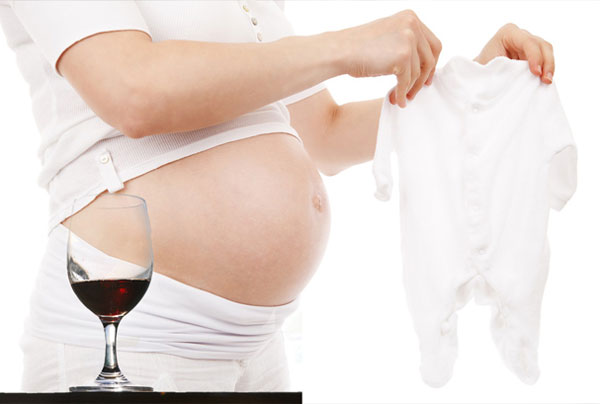
With increasing number of women consuming alcohol during pregnancy there is a rise in birth defects and developmental disabilities in babies, as well as an increased risk of other pregnancy problems, such as miscarriage, stillbirth, and prematurity. One in 10 (10.2 percent) pregnant women in the United States alone aged 18 to 44 years report drinking alcohol. In addition, 3.1 percent of pregnant women report binge drinking – defined as 4 or more alcoholic beverages on one occasion. This means that about a third of women who consume alcohol during pregnancy engage in binge drinking according to a report in CDC’s Morbidity and Mortality Weekly Report (MMWR).
What are Fetal alcohol spectrum disorders (FASDs)?
Fetal Alcohol Spectrum Disorders (FASD) refer to a range of disabilities, and include individuals with neurocognitive impairments as well as growth irregularities ranging from deficient to normal. FASDs are completely preventable: if a woman does not drink alcohol during pregnancy, her child has zero risk of an FASD.
Alcohol consumed during pregnancy passes from the mother’s blood to the baby through the umbilical cord. When a woman drinks alcohol, so does her baby. Alcohol can cause problems for a developing baby throughout pregnancy, including before a woman knows she’s pregnant.
| All types of alcohol are equally harmful, including all wines and beer. |
Signs and Symptoms
FASDs refer to the whole range of effects that can happen to a person whose mother drank alcohol during pregnancy. These conditions can affect each person in different ways, and can range from mild to severe.
A person with an FASD might have:
- Abnormal facial features, such as a smooth ridge between the nose and upper lip (this ridge is called the philtrum)
- Small head size
- Shorter-than-average height
- Low body weight
- Poor coordination
- Hyperactive behavior
- Difficulty with attention
- Poor memory
- Difficulty in school (especially with math)
- Learning disabilities
- Speech and language delays
- Intellectual disability or low IQ
- Poor reasoning and judgment skills
- Sleep and sucking problems as a baby
- Vision or hearing problems
- Problems with the heart, kidneys, or bones
Treatment Options
FASDs last a lifetime. There is no cure for FASDs, but research shows that early intervention treatment services can improve a child’s development.
There are many types of treatment options, including medication to help with some symptoms, behavior and education therapy, parent training, and other alternative approaches. No one treatment is right for every child. Good treatment plans will include close monitoring, follow-ups, and changes as needed along the way.
Protection Factors
Protective factors can help reduce the effects of FASDs and help people with these conditions reach their full potential.
They include:
- Diagnosis before 6 years of age
- Loving, nurturing, and stable home environment during the school years
- Absence of violence
- Involvement in special education and social services
If you are pregnant and consuming alcohol, it is never too late to stop drinking. Because brain growth takes place throughout pregnancy, the sooner you stop drinking the safer it will be for you and your baby.